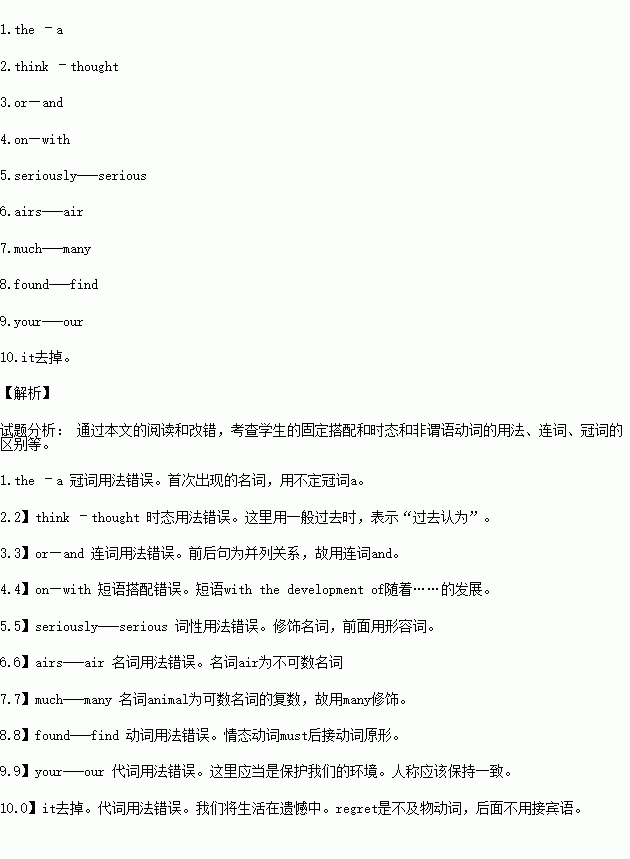ΧβΡΩΡΎ»ί
ΕΧΈΡΗΡ¥μ
ΦΌΕ®”Δ”οΩΈ…œάœ Π“Σ«σΆ§Ήά÷°ΦδΫΜΜΜ–όΗΡΉςΈΡΘ§«κΡψ–όΗΡΡψΆ§Ήά–¥ΒΡ“‘œ¬ΉςΈΡΓΘΉςΈΡ÷–Ι≤”–10¥Π”ο―‘¥μΈσΘ§ΟΩΨδ÷–ΉνΕύ”–ΝΫ¥ΠΓΘΟΩ¥Π¥μΈσΫω…φΦΑ“ΜΗωΒΞ¥ ΒΡ‘ωΦ”ΓΔ…Ψ≥ΐΜρ–όΗΡΓΘ
‘ωΦ”ΘΚ‘Ύ»±¥ ¥ΠΦ”“ΜΗω¬©Ή”ΖϊΚ≈Θ®ΓΡΘ©≤Δ‘ΎΤδœ¬Οφ–¥≥ωΗΟΦ”ΒΡ¥ ΓΘ
…Ψ≥ΐΘΚ‘Ύ¥μΒΡ¥ œ¬Μ°“ΜΚαœΏΘ§≤Δ‘ΎΗΟ¥ œ¬Οφ–¥≥ω–όΗΡΚσΒΡ¥ ΓΘ
ΉΔ“βΘΚ1.ΟΩ¥Π¥μΈσΦΑΤδ–όΗΡΨυΫωœό“Μ¥ ΘΜ
2.÷Μ‘ –μ–όΗΡ10¥ΠΘ§Εύ’ΏΘ®¥”ΒΎ11¥ΠΤπΘ©≤ΜΦΤΖ÷ΓΘ
When I was a child, I hoped to live in the city. I think I would be happy there. Now I am living in a city, but I miss my home in countryside. There the air is clean or the mountains are green. Unfortunately, on the development of industrialization, the environment has been polluted. Lots of studies have been shown that global warming has already become a very seriously problem. The airs we breathe in is getting dirtier and dirtier. Much rare animals are dying out. We must found ways to protect your environment. If we fail to do so, weΓ·ll live to regret it.
 ΦΤΥψΗΏ ÷œΒΝ–¥πΑΗ
ΦΤΥψΗΏ ÷œΒΝ–¥πΑΗ
